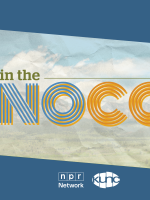A piece of U.S. immigration law allows some people who have entered the country illegally to be detained and quickly deported – without typical legal proceedings and a hearing before an immigration judge.
Until recently, this policy applied to people without legal status who had been in the country for less than two weeks, if they were detained near the U.S. border.
But on the first day of his new term, President Trump dramatically expanded that policy, known as . Now, immigrants without legal status who’ve been in the country for up to two years can be deported more quickly. And Trump’s revised version of the policy applies to the entire U.S. – not just the border region.
This shift potentially affects thousands of noncitizens here in Colorado, at a moment when immigration officials have been in cities like Denver and Aurora.
To better understand expedited removal, we reached out to , a professor of immigration law at the in Boulder, where she teaches the Immigration Defense Clinic.
She spoke with Erin O’Toole about the potential impact of this policy change.
Read a for members of the immigrant community from the Colorado Immigrant Rights Coalition.








